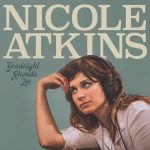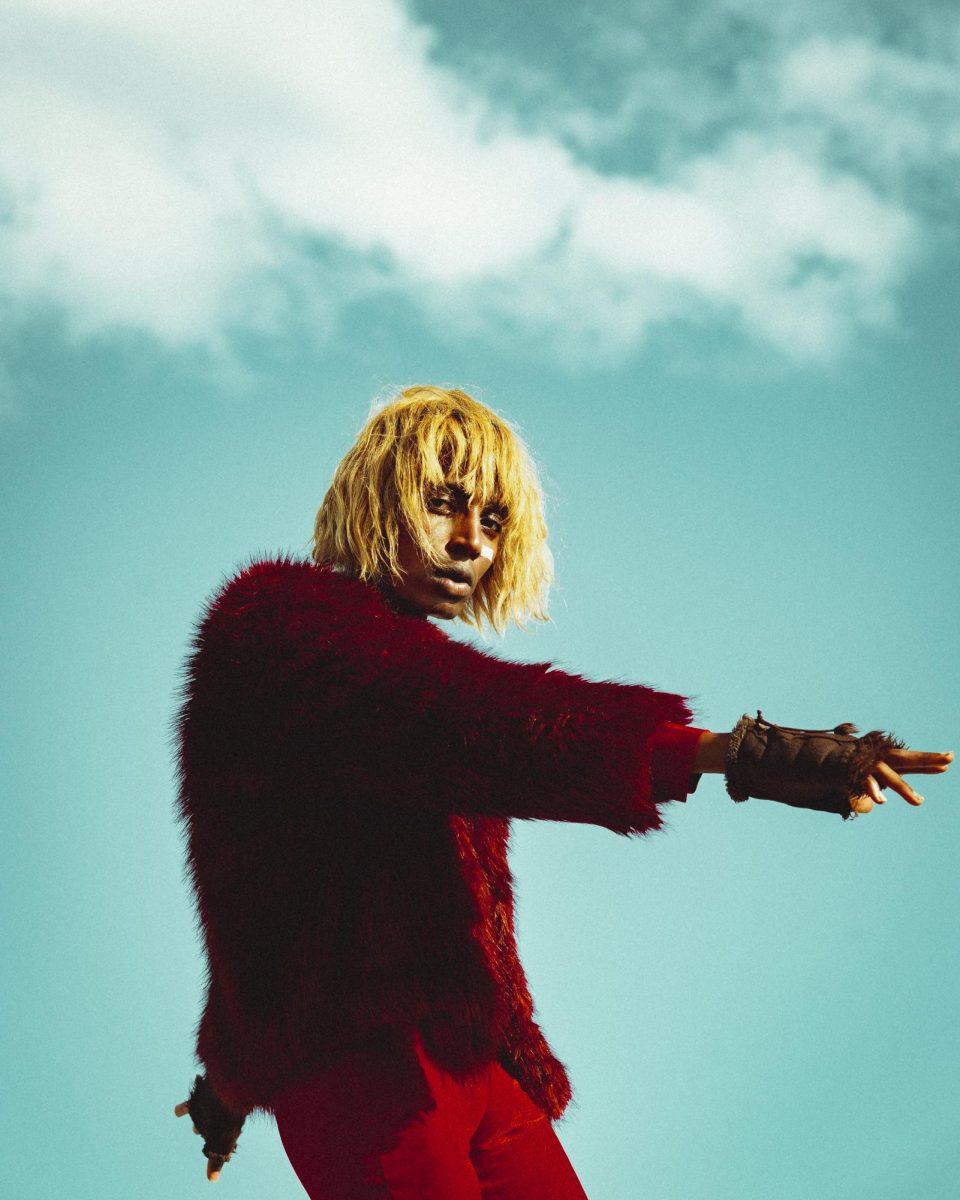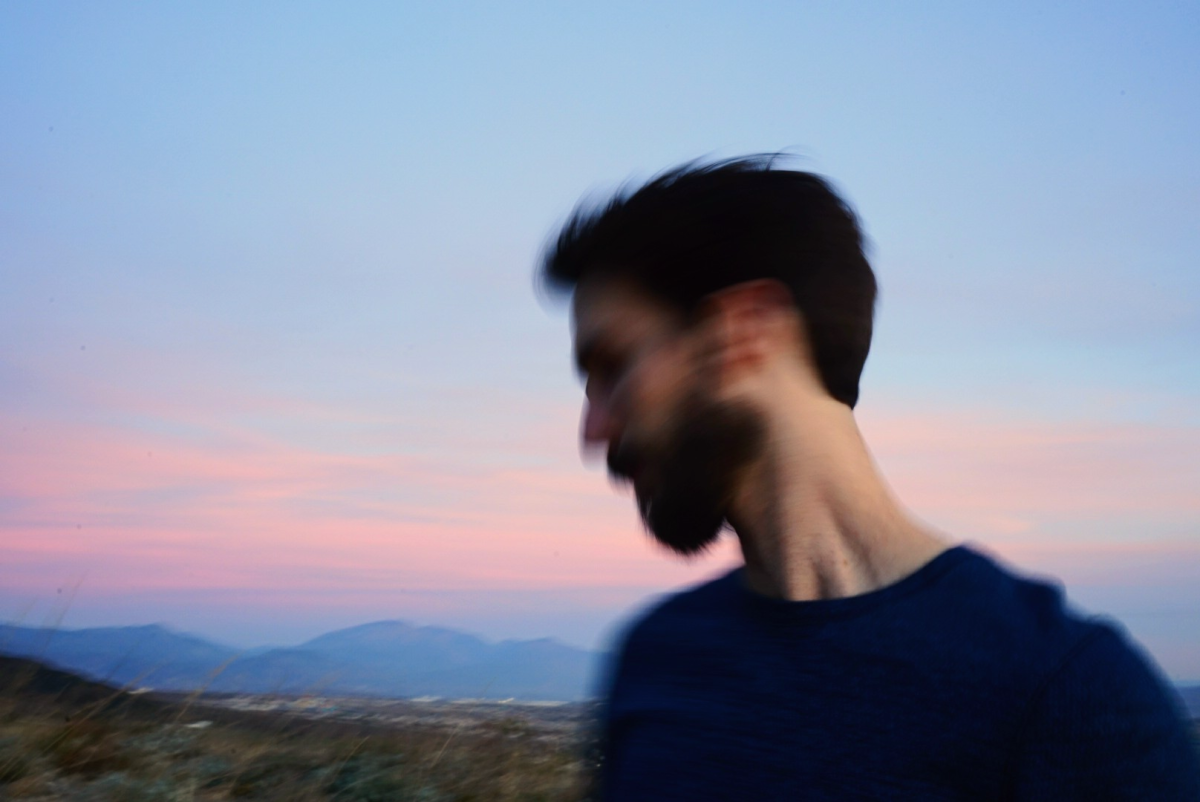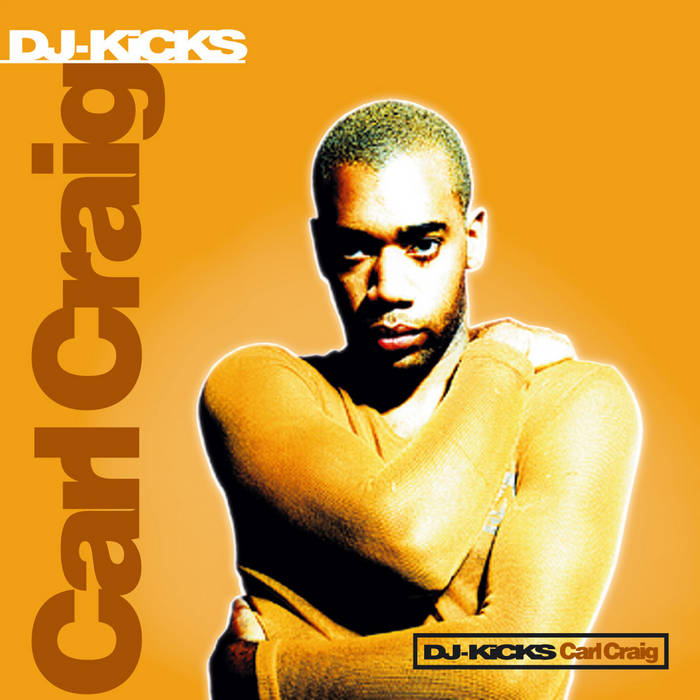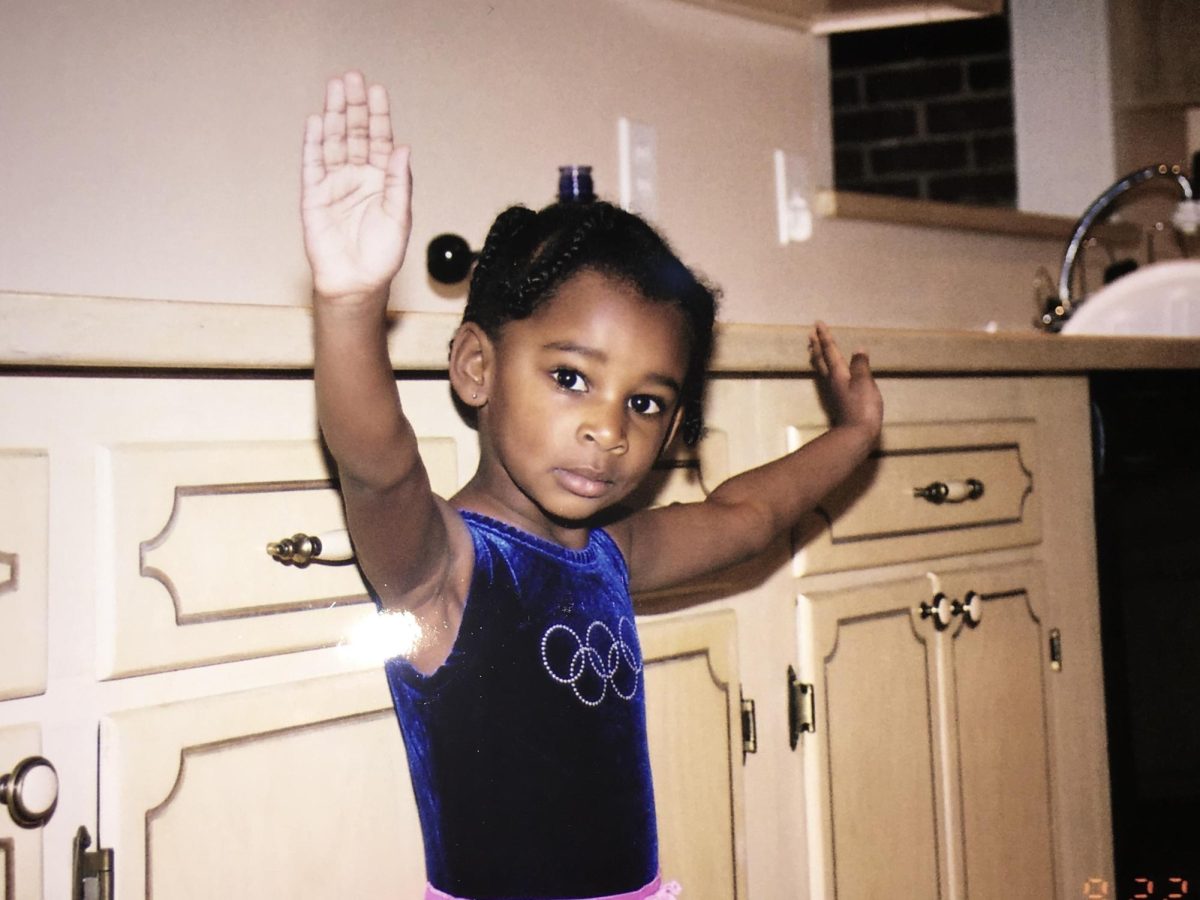Singer-songwriter Nicole Atkins believes in laughing off a mistake and putting it to song, not hiding it from the public eye. (“Are we just gonna cry all day?” she rhetorically asks.)
Now living in Nashville, the Jersey-born musician made “Goodnight Rhonda Lee” a more direct view of defeats and triumphs in love and sobriety, an effect of Atkins choosing honesty as the foundation underlying her songwriting.
Meeting up on a brick stoop in downtown Ann Arbor, Atkins and I sat down to chat before the start of a new tour to dig deeper into the album’s origin.
The new album has a lot of string and wind instruments. How did you transition to putting that on stage?
For the string parts – actually, both of them – I kinda have the keyboard player and the guitarist play the riffs that the strings and the horns are playing. When I arranged the strings and horns, I tried to keep it kind of simple, and almost how a guitar riff would be, you know? Instead of stacking tons of symphonic things, they’re just more riff based so it’s more adaptable to a budget [Laughs].
Did you do all the arranging for the album?
Yup. I just sang the parts to the string players and the horn players.
It was awesome. I had two hours with the strings and I was like, “All right, you do this: [sings descending notes].” And then my husband comes out of the control room and he’s like, “Nicole, you have 15 minutes left!” And I’m like, “Get the fuck out of here!”
The “Darkness Falls So Quiet” strings we did in literally 10 minutes. I had 10 minutes left and I was like, “Wait, you can’t leave! Just do a big hit here!”
That’s incredible.
I like working under pressure.
As far as the tour setup on stage: how many people are you rolling around with?
There’s five of us. It’s a basic setup. It’s keys, guitar, bass, drums and me.
Was it difficult for the (touring) musicians to pick up the string and horn parts?
No! That’s the cool thing about Nashville. Everybody’s really good, you know? It’s really good players down there. Tons of them.
I noticed that when I did a trip there earlier this year. Seems like everyone there knows an instrument.
It’s ridiculous. I would hate it if I moved there without having a career first. [Laughs] ‘Cause everybody’s so good.
Was it easier to find studio musicians there compared to where you recorded previously?
Oh, yeah. When I was living in New York and New Jersey… New York was a little bit easier to find musicians just ‘cause there’s more of them there. But everybody’s rents are very high in New York, so it’s expensive to have a band.
And then in New Jersey, you just knew everybody from growing up with them where I lived. So like my drummer: I used to babysit him. And he’s the only guy (not from Nashville).
There are a few tracks I wanted to dig a bit deeper on. First of which is “If I Could” – that one really stood out to me.
I was in a studio called New Monkey Studio in L.A. And I was writing “Listen Up” with Ryan Spraker and Vincent John. My friend, Terry, had gotten brain cancer – this story’s dark – he got brain cancer a few years ago and he beat it. And then his brother posted a memorial page for him up on Facebook, and I was like, “What the hell’s going on?”
And he was like, “Terry got diagnosed with cancer again and it’s pretty much untreatable. But he’s not dead and so we figured we’d just celebrate him while he’s still alive.” And I (thought) that was a really cool idea. Not enough people do that. People should know how much they’re loved while they’re still here.
So, that night I went and I met… It was funny, cause I met this woman named Louise when I was at a JD McPherson show in L.A. a couple days before. And she was like, “We should write a song together.” And I was just game to write with anybody, ‘cause I just figured you could write a bunch of songs by yourself or you could write triple that with other people.
I went to meet her and I played her “Listen Up” and I was like, “Yeah, I just wrote this today.” And she’s like, “You sound like a harder version of my mom.” And I was like, “Who’s your mom?” And she’s like, “Carole King.”
[Laughs] What? It was crazy. Her name’s Louise Goffin. She’s King and Goffin’s daughter which was nuts. And we wrote “If I Could.” I had the melody kicking around and (for) the words I just thought about Terry. Thought about, you know, if I could change the way things were for him, I would. So we wrote that in half an hour.
Wow. [Laughs] I would have never expected that listening to the song.
Can of worms, huh? [Laughs]
The first time I listened, it felt like a sequel to (Roy Orbison’s) “Oh, Pretty Woman.” Now knowing that backstory, my perspective on it is so different.
When I was writing it I thought it sounded like a Lee Hazlewood song meets The Mamas & the Papas. Or (Petula Clark’s) “Downtown.”
Another track I wanted to talk about was “I Love Living Here (Even When I Don’t).” Was that a way of you reflecting on where you grew up?
I had a dream right before we were moving out (of New Jersey) that I was watching Tom Waits at a bar play a song, and I was like, “Damn, I will never be as good of a writer as Tom Waits. I wish I could write something like this.”
And then I woke up and realized that I did because it was my dream and I remembered it. [Pulls out cell phone] And this is the actual picture that I found of me plucking out “I Love Living Here (Even When I Don’t)” the day we moved out. Just the piano was left.

I was like, “What is this gonna be about?” And I kept saying, [sings] “Even when… duh, dah… Even when…” And I called my piano friend Dave that I write a lot with. Great piano player. And I gave him the rough sketch of the song, and then he sent me some cooler chords.
I was just joking around when I was like, [sings] “I love living here, even when I don’t.” And then I thought about it and thought about Asbury Park. I love it, and it’s a place I’ll always love, it’s my home. But after… you know, it’s weird because you feel like nobody really – certain people know you, like your family – but you feel like, “I’m going home. Everybody knows me.” But they really don’t.
You walk into a bar and (they think), “There’s Nicole Atkins the singer.” They have no idea about the person your family knows or the person that your best friends know, so you put on a role when you’re out in public. I feel like a lot of people feel that way.
But there’s also a yin and yang, ‘cause you have that great comfort. You know how to get everywhere without a GPS, or you know the places you like to eat at. But then people start growing up and their personalities change. The places you love get bought or the lease runs out and torn down. It’s a lot of mixed feelings.
I have family living in New Jersey now. I was visiting and we did a day trip down to Asbury Park…
What year was it?
Just a few weeks ago.
Oh, OK. So it’s super cool now. I left as soon as it got nice. It was crack town when I was growing up.
Really?
Yeah, it’s where you went to buy drugs.
Is it strange coming back now and seeing it?
Well, no. I moved in right after college when there was nothing there ‘cause I just wanted to be part of it. There was an art scene going on there. And you could move into really huge buildings and loft spaces for super cheap. And everybody was making art.
We’d be playing Wiffle ball on the streets with a keg of beer and the cops would come and just tell us to not get hit by a bus. We wouldn’t get a ticket or anything.
Then, the gay community saw what was going on and they moved down from New York and put money into it and made it beautiful. It just kept building and building and now you pay $30 for a lobster roll. [Laughs]
One more song I wanted to go through was “Colors.” It seems to be one of the most personal on the album.
Yeah. That’s a hard one to talk about just ‘cause it really was one of the worst days of my life.
I quit drinking two years ago and it’s been kinda… When we moved, it was like, “I don’t know anybody! Maybe I could just have a beer with people and everything’s fine.” And then it would get to a point where everything’s not fine.
I just remember drinking again after a particularly long run of not drinking and having that three-day hangover, and just waiting for the train from New Jersey to go back to the airport. The lyrics for that came into my head just cause I thought about how annoying it was to just simply do the act of going to dinner with my husband and only noticing the bar. The beautiful colors of the bottles.
My sister was like, “That really sucks that he can’t have beer at home.” And I was like, “It’s not forever, it’s just for now.” It’s not that way now. But it took forever and it took time. And I said, “Courtney, imagine if somebody told you that you could never smoke weed ever again but everywhere you went it was everywhere.” And she was like, “That would be horrible.” [Laughs] And I said, “That’s my life right now.”
I was just having a pity party for myself and that melody and the words just came up. I sang them into my phone and sent them to my piano player Dave, and he sent back the music and it was written pretty fast.
Are you still sober today?
Yeah. Six months.
I just saw today…
Jason Isbell?
[Laughs] Yeah. He’s now five and a half years (sober).
Yeah. I talked to him a lot when I was putting this record out. I was like, “I feel kinda weird talking about this.” But that’s what a lot of the songs are about so I can’t make it up and say they’re about other things. And he was just like, “You know, be honest.”
Do you feel that you’re more honest with this album?
Well, yeah, more direct. Everything was really about things. The last record, “Slow Phaser,” was more of (creating) a beautiful story based off of real life. And this (new album) was more like, “This is happening!”
There’s still some songs, like the first one, “A Little Crazy” – when I got together with Chris Isaak, he was like, “Remember that crazy relationship you had when we first met?” And I was like “I’ll never forget.” And he was like, “Let’s go there.”
Man, we broke up and I was a total psycho. It was embarrassing! When you get a little older it gets a little easier to laugh at your flaws, in a way.
When you’re bringing the music out to an audience and you have all these stories in your mind… If an audience were to laugh at a story you’re telling, in any way does it feel almost offensive to you?
No, I want them to laugh. That’s the thing. If we can’t laugh at the most shitty things that happen to us, what’re we gonna do? Are we just gonna cry all day? That’d be horrible.
I know that the title of the album, “Goodnight Rhonda Lee,” and the name “Rhonda Lee” specifically came out as an alias, right?
Yeah. It was originally my bowling alias, ‘cause I liked the way that “Rhonda” looked on the bowling screen.
And that eventually got tied to…
Just partying. Even my sister, when she drinks too much it’s like “Steve’s out!” [Laughs] We call her “Steve.” And yeah, mine was “Rhonda Lee.”
Did putting out this album feel like a way to let go of that persona?
Yeah, or also just to show her a little love. I used to beat myself up all the time for the stupid things I’d say or do when I was drunk, you know? Don’t be so hard on yourself.
“Goodnight Rhonda Lee” is out now on Single Lock Records.
Follow WDBM’s Progressive Torch and Twang on Twitter for show updates and more Americana news.
Portions of this interview were edited for clarity and length.



